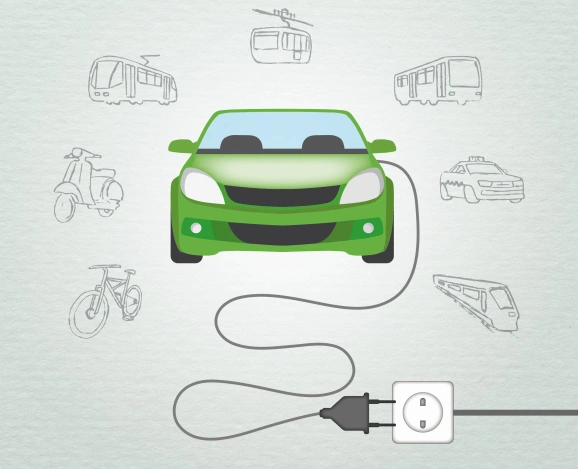A Comprehensive Guide to Electric Vehicles

Introduction: Welcome to our Electric Car Web Shop blog! Are you curious about the inner workings of electric cars and the components that power these cutting-edge vehicles? If so, you’ve come to the right place. In this article, we will take you on an exciting journey through the intricate world of electric vehicles (EVs) and explore the various components that make them the eco-friendly, efficient, and futuristic automobiles of today. By the end of this comprehensive guide, you’ll have a thorough understanding of the essential elements that drive the electric revolution. So, let’s dive in and discover the heart and soul of electric cars!
Understanding the Electric Car Powertrain:
At the core of every electric car lies its powertrain, which is fundamentally different from conventional gasoline-powered vehicles. The electric powertrain comprises three main components: the electric motor, the battery pack, and the power electronics. These components work in harmony to propel the vehicle forward while ensuring minimal environmental impact.
1. The Electric Motor: Silent Yet Powerful
At the heart of an electric car is the electric motor, a silent powerhouse responsible for converting electrical energy into mechanical energy. Unlike internal combustion engines that produce noise and emissions, electric motors offer a quiet and smooth driving experience. Learn how electric motors operate and the different types commonly used in electric cars.
2. The Battery Pack: Power on Wheels
The battery pack is the lifeblood of an electric car, storing the electrical energy required to power the electric motor. Discover the various types of batteries used in EVs, their capacity, charging capabilities, and how advancements in battery technology are shaping the future of electric vehicles.
3. Power Electronics: The Brain of the EV

Power electronics serve as the brain of an electric car, managing the flow of electrical energy between the battery pack and the electric motor. Delve into the role of power electronics in optimizing energy efficiency and controlling the vehicle’s performance.
Auxiliary Systems: Enhancing Efficiency and Safety:
Electric cars are equipped with additional systems that work synergistically to maximize efficiency and ensure the safety of passengers and pedestrians. Explore these auxiliary systems, including regenerative braking, thermal management, and electronic stability control, to understand how they contribute to the overall operation of an electric car.
Advantages of Electric Cars: A Greener Future Ahead:
Electric vehicles offer numerous advantages over conventional gasoline-powered cars, making them an attractive choice for environmentally-conscious consumers. Let’s explore the environmental benefits, cost savings, and convenience that come with owning an electric car.
Electric Cars at the Forefront of Technological Advancements:
The electric car industry is witnessing remarkable technological advancements that are revolutionizing the way we drive. From autonomous driving features to over-the-air updates, learn about the cutting-edge technologies that are propelling electric cars into the future.
Challenges and Opportunities in the Electric Car Market:

While electric vehicles have gained popularity, they still face challenges that impact their widespread adoption. Explore factors like range anxiety, charging infrastructure, and government policies that influence the growth of the electric car market. Additionally, discover the opportunities and initiatives aimed at overcoming these obstacles.
Safety and Maintenance Considerations for Electric Car Owners:
Safety is a top priority for any vehicle owner. Find out about the safety features specific to electric cars and the maintenance practices that can prolong the life of your EV’s components, including battery care tips and servicing recommendations.
Conclusion: Embracing the Electric Future In conclusion, electric cars are not just a passing trend; they represent the future of transportation. From their efficient and eco-friendly powertrains to the technological innovations shaping the industry, electric vehicles are leading the way towards a greener and more sustainable future. By understanding the components that power these remarkable automobiles, you can make informed decisions and join the electric revolution.
Remember, as the automotive industry continues to evolve, staying informed about electric car advancements and benefits will empower you as a responsible and eco-conscious car owner. So, take the first step towards a cleaner and greener tomorrow by embracing electric vehicles and contributing to a brighter future for our planet!
FAQs: Frequently Asked Questions
- Q: How far can electric cars travel on a single charge?
- A: The range of electric cars varies depending on the model and battery capacity. Most modern EVs can travel between 150 to 300 miles on a single charge.
- Q: Are electric cars more expensive to maintain than gasoline cars?
- A: Electric cars generally have lower maintenance costs due to fewer moving parts and reduced wear on the brakes. However, battery replacement costs should be considered in the long run.
- Q: How long does it take to charge an electric car battery fully?
- A: The charging time depends on the EV’s battery size and the charging station’s power output. Fast-charging stations can charge an EV battery to 80% in around 30 minutes, while standard charging may take several hours.







